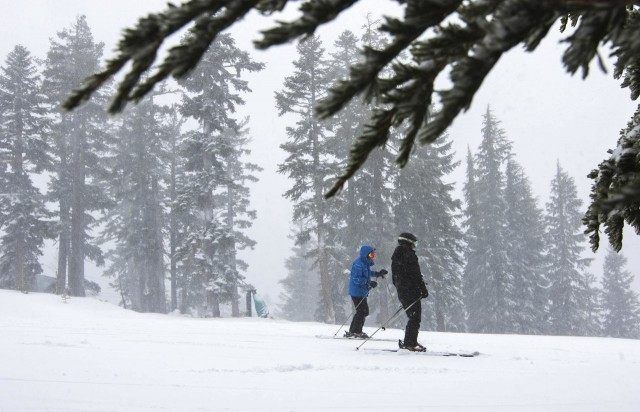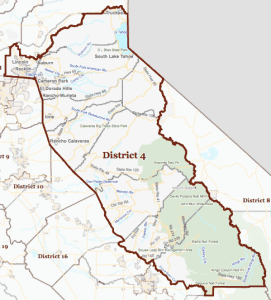Editor’s note: The presidential nominating contests in both parties will come down to the California primary.
For Democrats, 548 delegates are at stake — 11.5% of the total. For Republicans, 172 delegates are at stage — 6.9% of the total. Of those, for Democrats, 158 (29%) are divided proportionally on a statewide basis, while 317 (58%) are divided proportionally by congressional district, with each district providing between 5 and 8 delegates. The remaining 73 (13%) are “superdelegates.”
For Republicans, 13 (8%) are awarded statewide, with ten going to the candidate with the highest number of votes on a winner-take-all basis, and three going to “pre-determined” delegates (the State Chair, National Committeewoman, National Committeeman). Meanwhile, 159 (92%) are awarded by congressional district on a winner-take-all basis, with each district providing 3 delegates.
The result: a district-by-district battle in both parties, which we preview for you here.
CA-04: This magnificent district start east of Sacramento and takes in Lake Tahoe, the Sierra Nevada, and Yosemite National Park, along with many of the state’s most important reservoirs. It is represented in Congress by Rep. Tom McClintock, a Tea Party stalwart who has endorsed Sen. Ted Cruz for president. Demographically, it has much in common with the caucus states in which Cruz and Sen. Bernie Sanders (I-VT) have won — i.e. it is largely white.
Prospects:
Democrats: Bernie Sanders is likely to win here, provided he can turn out the rural vote. Clinton has few strongholds.
Sanders 5, Clinton 1
Republicans: McClintock’s endorsement actually matters here, and Cruz should prevail fairly easily over Trump.
Cruz 3, Trump 0, Kasich 0
Joel B. Pollak is Senior Editor-at-Large at Breitbart News. His new e-book, Leadership Secrets of the Kings and Prophets: What the Bible’s Struggles Teach Us About Today, is on sale through Amazon Kindle Direct. Follow him on Twitter at @joelpollak.


COMMENTS
Please let us know if you're having issues with commenting.